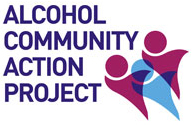Whether you want to stop a liquor store being built next to your kid’s school, prevent the local pub from staying open all hours or do something about the alcohol-related violence in your area – your voice will be stronger if you’re part of a group.
Engaging with local and state governments when making complaints about new liquor licenses or existing premises is easier as a community group than as an individual.
A good example of individuals coming together to form a community group is Last Drinks @ 12 from Byron Bay.
This group formed after 2000 members of the community mobilised to successfully oppose a Dan Murphy’s liquor supermarket. Byron Bay has some of the highest rates of alcohol-related harms in NSW, particularly after midnight. In 2013, the community formed Last Drinks @ 12 a group with over 300 supporters including residents, small businesses and organisations including the Police Association of NSW and the NSW Australian Medical Association (AMA). Last Drinks @ 12 established a website to provide information and resources to help the local community have a voice in all liquor-related decisions in their area.
ACAP can help individuals in communities mobilise to form groups committed to reducing alcohol-related harms. Contact us for more information.
Tips on Community Mobilisation
Professor Mike Daube, Director of the Public Health Advocacy Institute of Western Australia (PHAIWA) says the key to achieving change is looking at what was worked. At a workshop at the 42nd Annual Conference of the Public Health Association of Australia Professor Daube spoke about the lessons accumulated from past public health success such as tobacco control and road safety. These lessons can be applied to achieving change in alcohol regulation, these are:
1. Be professional.
2. Know what you want.
3. Work in coalitions (present a united front, sing from the same song sheet).
4. Have a clear message.
5. Understand government, policy, politics, bureaucracy – all levels, all parties, seek to work with all.
6. Understand and work with the media.
7. Identify and understand the opposition and oppose it, and expose it.
8. Don’t sleep with the enemy.
9. Work to a plan, but be creative and opportunistic.
10. Overnight success takes time. Be patient, accept the best you can get along the way, but keep heading for the key objectives.
11. Give credit where it belongs.


